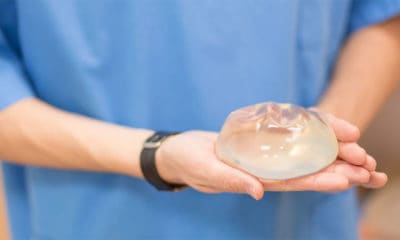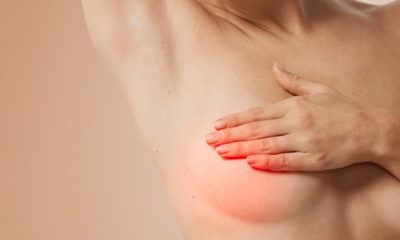
As many patients know, breast augmentation procedures come with a variety of risks, capsular contracture being the most prominent and infamous. Dr. Anand Deva, a surgeon and scientist based in Sydney, Australia, has been studying capsular contracture in his lab in order to discover the causes, and, subsequently, ways to prevent this common complication.
By Anand Deva, MD
and Adam McMillon
ThePlasticSurgeryChannel.com
What is capsular contracture?

The complication is an abnormal response of the immune system to foreign objects within the body, such as breast implants. The body’s immune system responds to the presence of the implant by forming capsules of tightly woven collagen fibers. The capsules can tighten and squeeze the implant, often causing discomfort, pain and a distorted appearance of the breast. While surgeons and scientists are somewhat in the dark about the causes of capsular contracture, several studies have been performed to whittle down the possibilities to find a solution.
The apparent culprit of capsular contracture? Bacteria
Dr. Deva’s rigorous scientific examination of the complication has zeroed in on what seems to be the primary cause of capsular contracture: bacteria. “The most common cause of the complication seems to be a low-grade bacterial infection during the initial surgery,” says Deva. “A small portion of bacteria are apparent during the installation of the breast implants. These bacteria attach themselves to the implant and lay the foundation of future capsular contracture.” Deva unraveled the science behind this assumption by studying breast implants from start to finish over a long period of time. What his team found is the more severe a case of capsular contracture, the higher the amount of bacteria present in the area surrounding the implant. “This finding suggests that a bacterial presence during breast augmentation surgery plays a direct role in the future occurrence of capsular contracture,” says Deva.

How can surgeons prevent capsular contracture?
As scientific studies continue to look into the causes of capsular contracture, surgeons can move forward with the information that the complication arises from initial bacterial infection. “The best way we, as surgeons, can prevent capsular contraction is to standardize breast implant procedures,” notes Deva. “We must be absolute in our attempt to minimize all possible facets of the surgery where bacteria might get in.” Some of the precautions necessary:
- Breast tissue must not be cut
- Breast implant pocket must be entirely sterilized
- Implant must never touch the skin as it is inserted
The Take Away for Patients
“While many surgeons take various precautions during breast implantations, some do more than others,” says Deva. Patients should do their research and understand the risk of capsular contracture. Beyond that, patients should research surgeons. “The patients best bet at lowering the possibility of capsular contracture and other risks is to undergo the procedures with board certified plastic surgeons,” says Deva. “The expertise is always a requirement, but surgeon integrity will be the deciding factor.”














Facebook
Twitter
Instagram
YouTube
RSS